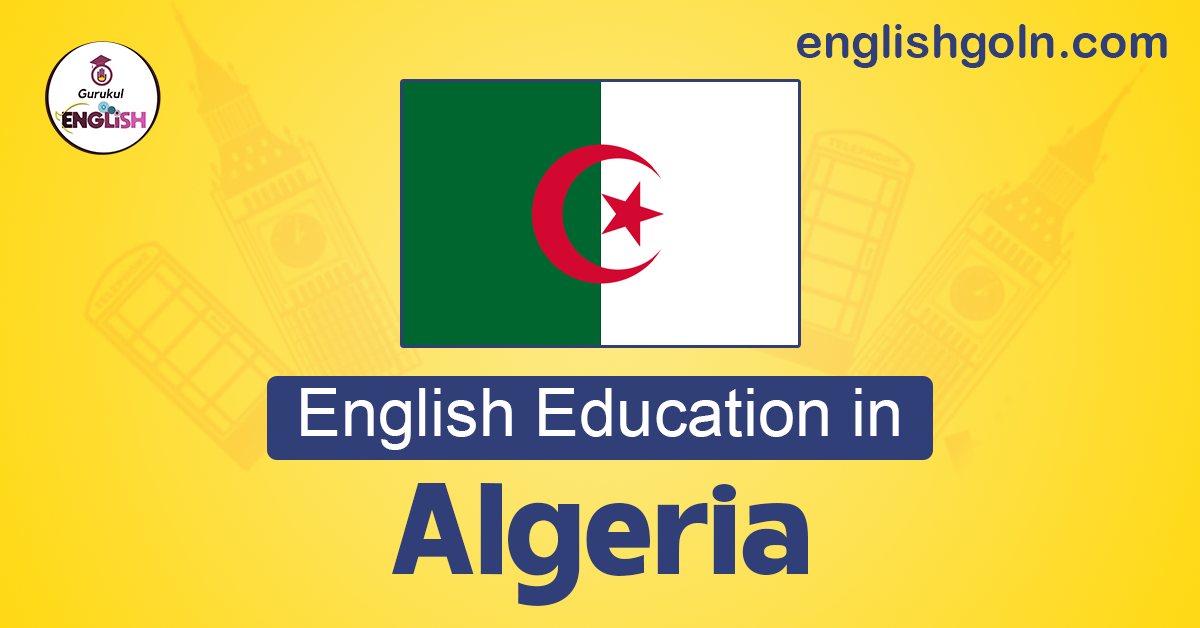English education in Algeria has been a topic of significant interest and debate over the years. As Algeria seeks to enhance its global engagement and economic competitiveness, the demand for English language skills has grown exponentially. However, the journey towards establishing a robust and effective English education system has been riddled with challenges. In this article, we will explore the historical context of English education in Algeria, the current state of affairs, the challenges faced, and the opportunities that lie ahead.

Historical Background
Algeria’s linguistic landscape has been shaped by its history of colonization and cultural influences. French colonization from 1830 to 1962 led to the widespread use of French as the language of administration, education, and social mobility. Arabic remained the dominant language for daily communication and cultural expression.
Post-independence, Arabic became the official language of Algeria, reflecting the country’s quest for national identity and independence. Arabic was integrated into the education system, while French remained an important second language, primarily used in higher education and administration.
English, however, gained prominence on the global stage as a language of international communication, trade, and diplomacy. Recognizing the importance of English language skills for economic development and global integration, Algeria began to introduce English education in schools and universities.
Current State of English Education
In present-day Algeria, English education plays a crucial role in nurturing a bilingual and multicultural population. English is taught as a foreign language from an early age, often starting in primary schools. It is usually a mandatory subject in secondary education, and students can choose to continue studying English in higher education institutions.
Algerian universities offer English language and literature programs, attracting students with an interest in language teaching, translation, literature, and international relations. These programs aim to produce graduates with advanced English proficiency, capable of interacting confidently in global academic and professional contexts.
English language proficiency tests, such as TOEFL (Test of English as a Foreign Language) and IELTS (International English Language Testing System), are recognized and widely accepted for admission to foreign universities and employment opportunities abroad.
Challenges in English Education
Despite the efforts to promote English education, Algeria faces various challenges in achieving widespread proficiency in the language:
- Linguistic Divide: The coexistence of Arabic, French, and English can create linguistic challenges, leading to a linguistic divide among the population. This divide may impact language proficiency and hinder effective communication in all three languages.
- Quality of English Instruction: The quality of English instruction in schools and universities can vary significantly. Insufficient resources, outdated curricula, and a lack of qualified teachers can hinder the development of students’ language skills.
- Emphasis on Grammar: English education in Algeria has traditionally focused heavily on grammar and vocabulary, with limited emphasis on speaking and listening skills. As a result, students may be well-versed in grammar rules but struggle to communicate effectively in real-life situations.
- Teacher Training: The professional development of English language teachers is crucial for improving the quality of instruction. Adequate training, ongoing support, and exposure to modern teaching methodologies can enhance the effectiveness of English education.
- Limited Exposure to English outside the Classroom: Limited exposure to English outside the classroom can hinder language acquisition. Opportunities for students to engage with native English speakers, access English media, or participate in language exchange programs are limited.
- Language Attitudes: The perception of English as a foreign language rather than a valuable communication tool can influence language attitudes among students. Students may view English education as a mere academic requirement rather than a means to enhance their global prospects.
Opportunities for Improvement
Despite the challenges, there are several opportunities to improve English education in Algeria:
- Curriculum Enhancement: Updating and modernizing the English language curriculum to include more communicative language teaching approaches can improve language proficiency and practical skills.
- Teacher Development: Investing in professional development programs for English language teachers can enhance their teaching methodologies and pedagogical skills.
- English Language Immersion Programs: Organizing language immersion programs, English-speaking camps, and exchange programs can provide students with authentic language exposure and cultural experiences.
- Technology Integration: Integrating technology, such as language learning apps and online resources, into the language curriculum can make learning more interactive and accessible.
- English-Medium Instruction: Exploring the introduction of English-medium instruction in certain university programs can foster bilingualism and better prepare graduates for international careers.
- Community Engagement: Engaging the community, parents, and local businesses in supporting English education initiatives can create a more conducive environment for language learning.
Conclusion
English education in Algeria holds immense potential to equip the country’s population with valuable language skills for global engagement. By addressing the challenges and capitalizing on the opportunities, Algeria can create a comprehensive and effective English education system.
Efforts to promote multilingualism, while enhancing English proficiency, can strengthen Algeria’s position in an increasingly interconnected world. A well-rounded English education, coupled with a strong emphasis on national languages and culture, can empower Algerians to thrive in the global community, fostering greater economic, cultural, and diplomatic opportunities for the nation.
